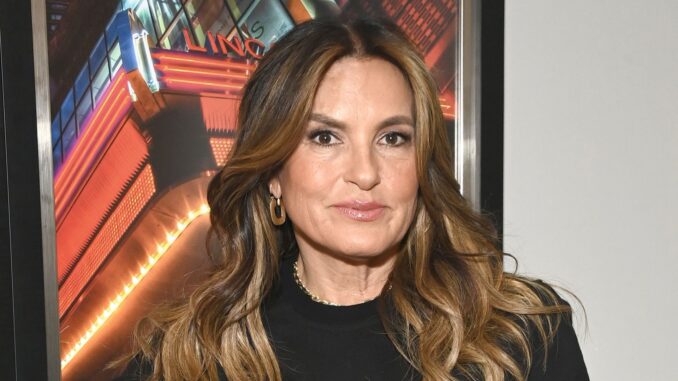
The insistent, two-tone dun-dun of the Law & Order franchise is more than just a sound; it's a Pavlovian signal for justice about to be served, for darkness brought to light. For a quarter-century, its most resonant iteration has been Law & Order: SVU, and its unwavering heart, Detective (now Captain) Olivia Benson, played with a fierce, empathetic intensity by Mariska Hargitay. She is, to millions, the embodiment of resilience, the unyielding advocate for the voiceless. But beneath the steady drumbeat of justice, Hargitay, the very soul of SVU, has quietly borne a different kind of burden, one now acknowledged in her courageous revelation of secondary trauma after decades immersed in the show's harrowing narratives.
To understand Hargitay's admission is to first grasp the unique crucible of SVU. Unlike most episodic dramas, SVU doesn't shy away from the grotesque, the gut-wrenching, the deeply disturbing realities of sexual violence, child abuse, and human trafficking. Each script is a deep dive into the darkest corners of the human psyche, a meticulous reconstruction of suffering. For Mariska Hargitay, playing Olivia Benson isn't just a job; it's a decades-long empathetic immersion. She doesn't merely read the lines; she absorbs the pain, the terror, the injustice. Her portrayal is so visceral, so authentic, that it often blurs the lines between actor and character, allowing viewers to see not just Olivia Benson, but the beating heart of Mariska Hargitay within her.
Secondary trauma, often called vicarious trauma or compassion fatigue, is the cost of caring. It's the psychological impact experienced by those who are constantly exposed to the traumatic experiences of others. Think of the first responder who witnesses countless accidents, the therapist who daily delves into the depths of a client's abuse, or the social worker navigating shattered lives. Their empathy, while a professional asset, becomes a personal liability. For Hargitay, this exposure isn't occasional; it's been her daily reality for over twenty-four years, a professional lifetime spent acting out scenes of unimaginable horror, listening to fictionalized accounts that echo real-world atrocities, and embodying a character whose entire purpose is to internalize and then fight against these evils.
Imagine a sponge, endlessly soaking up polluted water. For a time, it retains its integrity, doing its job. But over decades, the toxins seep in, discoloring, weakening, eventually becoming part of its very fabric. Hargitay, in her role, has been that sponge. Each tear shed on screen, each scream she's had to witness, each victim's story she's had to bring to life, leaves an emotional residue. These aren't just scripts; they are carefully researched, often "ripped from the headlines" dramatizations that demand a profound, almost spiritual, investment from the actor. The constant confrontation with human depravity, even in a controlled set environment, doesn't simply disappear when the director yells "cut." It lingers like a faint but persistent scent, a shadow that clings to the periphery of one's own reality.
Hargitay's vulnerability in speaking out is a testament to her strength, and perhaps, a late-stage recognition of the profound fatigue that can accumulate. It's not a weakness to admit that carrying the weight of the world's suffering, even fictionalized, takes its toll. It's a human truth. Her admission validates the silent struggles of countless real-life first responders, therapists, and advocates who, like her, have dedicated their lives to confronting trauma. It peels back the layers of the impervious superhero persona, revealing the raw, exposed nerve of the human being beneath. The woman who has been a beacon of strength for so many victims on screen is now, herself, opening up about a wound born of that very empathy.
Her decades on SVU have transformed Hargitay into more than just an actor; she's become a cultural touchstone, a real-world advocate through her Joyful Heart Foundation. This foundation, dedicated to helping survivors heal, is itself a poignant illustration of her inability to simply "turn off" the empathy she channels as Olivia Benson. It's an extension of her character's mission into her own life, blurring the lines further and amplifying the potential for vicarious trauma.
Mariska Hargitay opening up about secondary trauma after decades on SVU is a powerful, illustrative lesson in the invisible costs of compassion. It reminds us that even the most stoic figures, the most unwavering champions of justice, are susceptible to the psychological erosion that comes from prolonged exposure to pain. It is a vital conversation, catalyzed by an icon, urging us to acknowledge the hidden burdens carried by those who walk through the darkness for others, and to offer them, in return, the same empathy they so tirelessly extend. The dun-dun may signify justice, but Hargitay's admission now adds another, equally profound, note: the quiet, echoing cost of seeking it.
